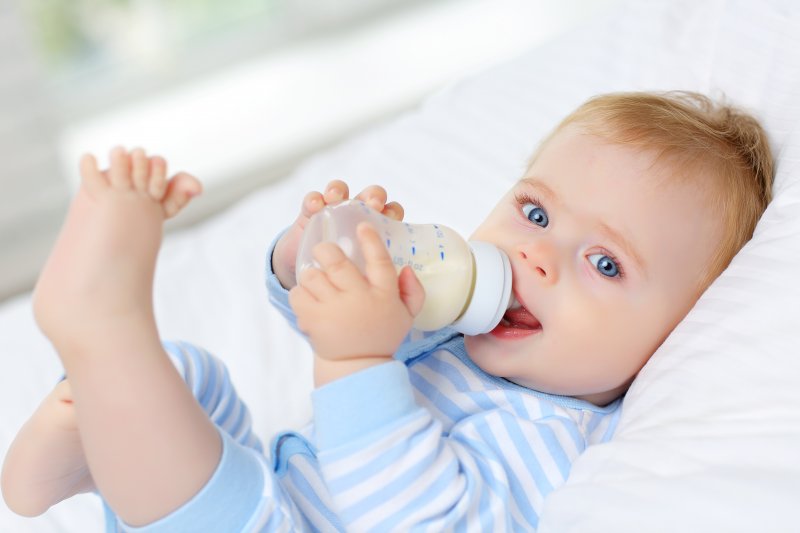
Baby teeth might be temporary, but that doesn’t mean they’re not important. Healthy baby teeth lead to healthy permanent teeth – and conversely, decayed baby teeth can lead to long-term oral health problems later in life. Baby bottle tooth decay is a particularly common issue that some parents in Naperville may not even be aware of but is nevertheless as potentially devastating as it is preventable. Read on to learn more about this kind of tooth decay, what causes it, and what you can do to stop it.
What is Baby Bottle Tooth Decay?
This term is often used to refer to cavities in toddlers typically caused by overexposure to sugary drinks such as juice, milk, formula, and various sweetened drinks. The decay usually occurs in the upper front teeth. The name comes from the fact that such decay is usually a result of allowing the baby to go to bed with their bottle, or using said bottle as a substitute for a pacifier. This increases the amount of time that your child’s teeth are coated in the sugary liquids that encourage cavities. Other possible causes of tooth decay include prolonged breast-feeding habits, using pacifiers that have been dipped in honey or syrup, or a parent inadvertently passing their own cavity-causing bacteria to their baby by putting the child’s feeding spoon or pacifier in his or her own mouth.
What are Signs of Baby Bottle Tooth Decay?
The most reliable way to catch tooth decay is to visit your children’s dentist on a regular basis, but there are a few warning signs that you may notice on your own, such as:
- White spots on the upper front teeth.
- Constant pain and discomfort in the mouth.
- Bleeding or swollen gums.
- Fever.
- Bad breath.
Preventing Baby Bottle Tooth Decay
First of all, you should minimize your child’s exposure to especially sugary beverages as much as possible, and you should definitely make sure that they finish their bottles before going to bed. You should also be careful not to share saliva with your child via feeding spoons or pacifiers. Other basic steps you can take to protect your little one from cavities include:
- Cleaning their gums regularly with a clean, damp gauze pad or washcloth.
- Brushing their teeth with a rice-sized amount of toothpaste until age 3.
- Teach your child to drink from a cup by their first birthday.
Your dentist might have other ideas for how you can reduce the risk of cavities for your infant. Preventing baby bottle tooth decay or having it treated as soon as possible can make the difference between a future of complex, costly dental treatments and a healthy, confident smile that serves your child well into adulthood.
About the Practice
At Grand Dental – Naperville, our experienced dental team helps patients of all ages enjoy healthy smiles. Children are welcome at our practice, and we are more than happy to give parents advice on recognizing and avoiding the risk factors for early tooth decay. If you’re worried that your child might have developed cavities, visit our website or call (630) 576-9970.
